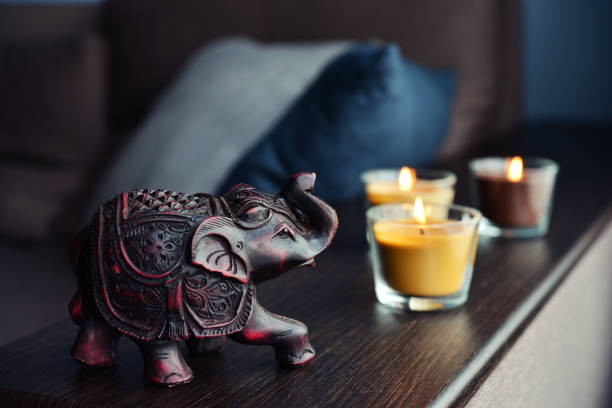Japan, a nation renowned for its rich cultural heritage, boasts a tapestry woven with traditions and customs deeply ingrained in its societal fabric. Among these cherished traditions is the Obon festival, a poignant celebration that bridges the chasm between the living and the departed. Rooted in Buddhist beliefs and familial reverence, Obon is not just an event on the calendar; it’s a profound expression of gratitude, remembrance, and connection to ancestors. Within the framework of this festival, family commemoration and ancestral worship intertwine to shape the daily lives of the Japanese people.
The Essence of Obon
Obon, also known as Bon, is an annual Buddhist event held during the seventh month of the lunar calendar, typically in August in Japan. This period is believed to be when the spirits of deceased ancestors return to the earthly realm to visit their living relatives. The festival itself unfolds over several days, with its exact dates varying regionally across the country.
The essence of Obon lies in its dual significance: it serves both as a time for familial reunion and as an occasion for expressing gratitude and respect to one’s ancestors. Central to the festival are customs such as cleaning ancestral graves, offering food and incense at household altars, and participating in various cultural rituals and ceremonies.
Family Commemoration: A Time for Reunion and Reminiscence
At the heart of Obon is the notion of family, where generations come together to honor their lineage and forge stronger bonds. The festival often heralds a period of travel as individuals journey back to their hometowns to reunite with relatives. This mass migration, known as “Obon traffic,” paints a vivid picture of the importance placed on familial ties during this time.
For many Japanese families, Obon is an opportunity to engage in age-old traditions that have been passed down through generations. One such tradition is the preparation of offerings known as “soul cakes” or “bon-uchiwa,” delicate sweets made from rice flour and sugar. These treats, adorned with intricate patterns, are believed to nourish the visiting spirits of ancestors.
Ancestral Worship: Bridging the Gap Between Past and Present
Central to Obon is the act of ancestral worship, a practice deeply rooted in Buddhist and Shinto beliefs. Families meticulously clean and decorate the gravesites of their ancestors, a process known as “ohaka-mairi.” This act of reverence not only pays homage to those who came before but also serves as a reminder of the continuity of life and the cyclical nature of existence.
During Obon, households often set up altars adorned with offerings such as fruits, vegetables, and rice cakes, collectively known as “shoryo-dana.” These offerings symbolize gratitude for the benevolent guidance and protection believed to be bestowed by ancestral spirits. Additionally, families light incense and perform rituals like “mukaebi” (welcoming fires) to guide the spirits home and “okuribi” (sending off fires) to bid them farewell at the end of their visit.
The Impact on Daily Life
While Obon itself is a finite period, its influence extends far beyond the festival’s duration, permeating the fabric of daily life in Japan. The practices and values instilled during Obon—such as filial piety, respect for elders, and the importance of familial bonds—shape the way individuals navigate their relationships and obligations throughout the year.
The emphasis on honoring ancestors serves as a constant reminder of the interconnectedness between past, present, and future generations. This awareness fosters a profound sense of continuity and belonging, grounding individuals in their cultural heritage and collective identity.
Moreover, the communal aspect of Obon fosters a sense of solidarity and cohesion within communities, as neighbors come together to participate in shared rituals and support one another in honoring their ancestors. These collective experiences strengthen social bonds and reinforce the interconnectedness of all members of society.
Challenges and Adaptations
While Obon remains deeply cherished, modernity has introduced new challenges and adaptations to this age-old tradition. In contemporary Japan, where urbanization and changing lifestyles have altered traditional family structures, the observance of Obon may vary among individuals and households.
For some, the demands of work and urban living may limit their ability to participate fully in Obon rituals, leading to a sense of disconnection from ancestral traditions. However, efforts to adapt Obon customs to fit modern lifestyles, such as virtual grave visits and online memorial services, highlight the resilience of these traditions in the face of evolving societal dynamics.
Japan’s Obon festival stands as a testament to the enduring power of tradition and the profound impact of ancestral reverence on daily life. Through the practices of family commemoration and ancestral worship, Obon serves as a poignant reminder of the importance of honoring one’s roots and cherishing familial bonds.
As Japan continues to evolve in the modern era, Obon remains a beacon of cultural continuity, weaving together the threads of past, present, and future. In its celebration, we find not only a time-honored tradition but also a timeless expression of gratitude, remembrance, and the enduring spirit of familial love.





